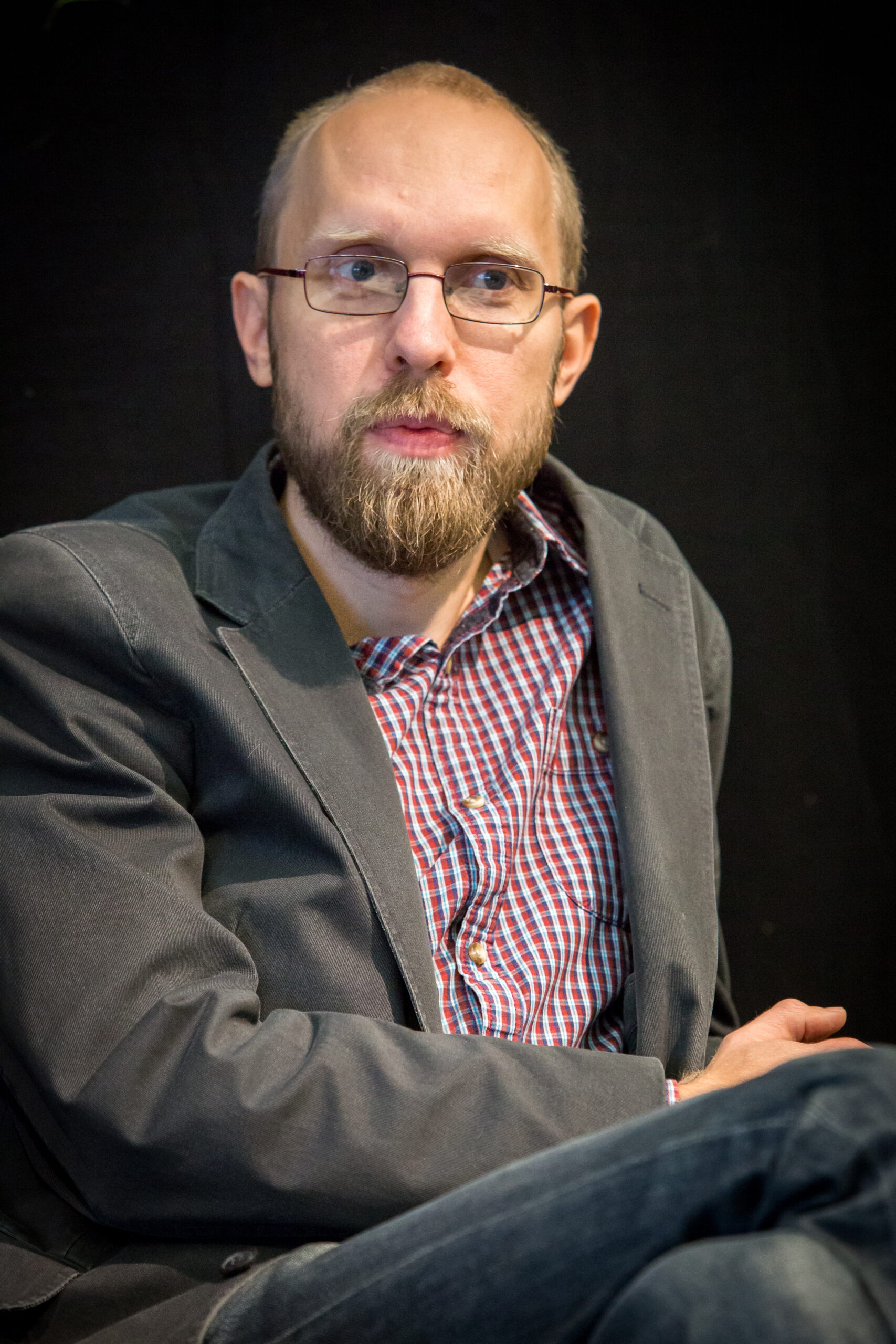Meelis Friedenthal (Estonia)
Meelis Friedenthal defended his doctoral thesis at the University of Tartu in 2008 on a 13th-century manuscript housed in the Tallinn City Archives, which dealt with the theological-allegorical understanding of sight and perception based on various medieval theories of vision. Concurrently with writing his doctoral thesis, he also published a novel titled “Kuldne aeg” (“The Golden Age”), belonging to the genre of speculative fiction, addressing issues of memory, history, and its reconstruction in a dystopian future world.
From 2008 to 2014, Friedenthal participated in the research project “The Spread and Reception of Ideas and Theories in the Baltic Countries during the Swedish and Russian Empires” and primarily researched the history of the University of Tartu in the 17th century. The novel “Mesilased” (“The Willow King”, English translation by Matthew Hyde, Pushkin Press 2017), belonging to the field of magical historicism, which was published during this period, stemmed from the research on the history of the University of Tartu. The work won the European Union Prize for Literature in 2012 and has been translated into 15 languages to date.
In 2014–2015, Friedenthal was a Lichtenberg-Kolleg Fellow at the University of Göttingen, researching religious tolerance in the early modern period, particularly in German universities. From 2015 to 2020, Friedenthal was a Pro Futura Scientia Fellow at the Swedish Collegium for Advanced Study in Uppsala, researching university disputations in the Baltic region during the early modern period. During this period, Friedenthal wrote his third novel, “Inglite keel” (“The Language of Angels”) (2016), which also belongs to the field of magical historicism and deals with the history of books and paper.
In 2021, Friedenthal published the collection of short stories “Kõik äratatakse ellu” (“All Are Awakened”), which gathers a selection of stories written between 2002 and 2021. Many of the stories published there have previously appeared in science fiction anthologies edited by Indrek Hargla.
Currently, Friedenthal works as an Associate Professor of Intellectual History at the University of Tartu Library and the University of Tartu, with his main research theme being the intellectual history of the Baltic Sea region in the early modern period, focusing on the history of theology and philosophy. At the end of 2023, his fourth novel, “Punkti ümber” (“Around the Point”), was published, set in the early 20th century and loosely based on the life of the Estonian-origin artist, filmmaker, and occultist Friedrich Jürgenson.

Creative Writing Workshop “Writing as a Time Machine” with the Writer of the Day Meelis Friedenthal